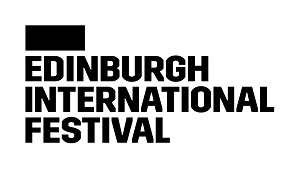
 United Kingdom Edinburgh International Festival 2016 (5) – Wagner, Das Rheingold (in concert): Mariinsky Opera/Valery Gergiev (conductor), Usher Hall, 15.8.2016. (SRT)
United Kingdom Edinburgh International Festival 2016 (5) – Wagner, Das Rheingold (in concert): Mariinsky Opera/Valery Gergiev (conductor), Usher Hall, 15.8.2016. (SRT)
Cast:
Vitalij Kowaljow – Wotan
Mikhail Vekua – Loge
Ekaterina Semenchuk – Fricka
Vladislav Sulimsky – Alberich
Andrei Popov – Mime
Yury Vorobiev – Fasolt
Mikhail Petrenko – Fafner
Evgeny Akhmedov – Froh
Ilya Bannik – Donner
Zhanna Dombrovskaya – Woglinde
Yulia Matochkina – Wellgunde
Ekaterina Sergeyeva – Flosshilde
One of the ways in which Fergus Linehan is hoping to re-energise the EIF’s opera programme is a concert Ring cycle, unfolding over four years with four different sets of artists. The high-profile Mariinsky Opera rolled into town tonight to get it all started, under their controversial music director who, equally controversially (inexplicably?) is also the festival’s Honorary President.
Gergiev’s Wagner has come in for a lot of criticism over the years, but what I’ve heard (on disc) I’ve always enjoyed, albeit with reservations, and that includes his recent Rheingold recording. Likewise, tonight he had a good grasp of the unfolding span in a way that I found generally impressive, despite a few questionable tempo choices where things slowed down dangerously. He controlled the transitions especially well, and I found the ebb and flow of the drama worked well in his hands, the Erda scene being a case in point, where the screw tightened just beforehand and then the tension was steadily released during Erda’s monologue.
The one thing he did seem to struggle with, however, was blend; not from the voices but within the orchestra. The Mariinsky are a crack team of musicians. The years have shown they can excel in pretty much anything, and tonight they sounded first rate, most especially the brass, whose rich, dark colouring underpinned everything with astounding confidence. They were incisive in the curse, electric when the sword motif rings out at the end, and thrillingly noble during the transition into Scene Two. The horns repeatedly had me wondering whether they were the most important group of instruments on the stage. The winds were full of life, from the gurgle of the bass clarinet to the sparkle of the piccolo in Loge’s music, and the strings shimmered magnificently throughout. Therein lay the problem, however, as they were frequently subsumed into the general melange and sometimes even drowned out. That was a particular problem in the watery music of the first scene (even in the Prelude), and they were far too soft as they depicted the gathering clouds for the rainbow bridge. Again and again it struck me that Gergiev was struggling to adapt to the balance of the Usher Hall – not a problem that many visiting orchestras face.
The best of his mostly Russian cast were excellent, but as a whole they made for a variable bunch, and I couldn’t help but wonder whether his singers’ mistakes (and there were a few) were attributable to on-the-night adrenaline or to the perennial problem of under-rehearsal. Vitalij Kowaljow (a Swiss-Ukrainian) makes a commanding Wotan, exuding authority and making for a totally believable god, while still showing the frustration of being trapped in dilemmas of his own making. As his wife, Ekaterina Semenchuk was histrionic yet utterly musical, in the tradition of the very finest Russian mezzos. Petrenko and Vorobiev made a first rate pair of giants, too; Vorobiev’s Fasolt full of sympathy and a wounded sense of injustive, Petrenko’s Fafner exuding barely concealed malice below the surface. Vladislav Sulimsky has the vocal apparatus to be a great Alberich, but too often he lost self-control in the big moments and shouted his way unattractively through the setpieces like the curse or the renunciation of love. Mikhail Vekua continually attacked Loge’s music from beneath the note and, while Akhmedov and Bannik were fine as Froh and Donner, at times they were barely audible. The trio of Rhinemaidens were alluring at their first appearance but sounded terribly off-pitch for their off-stage finale.
For all the variability of the singers, I loved having this great orchestra on stage and seeing into the inner working of this music-drama, in a way that would have infuriated the composer but is continuously thrilling for those who know the work. If, ultimately, it was too uneven an evening then the highs still remained memorable, and this was a pretty good start to the EIF’s Ring. However, I’m not sorry that we’ll be getting a different set of artists for Walküre next year.
Simon Thompson
The 2016 Edinburgh International Festival runs until Monday 29th August at venues across the city. For full details go to www.eif.co.uk.
Vitalij Kowaljow is not Russian. He is Swiss-Ukrainian.
http://intermusica.co.uk/artist/Vitalij-Kowaljow
Thank you for contacting Seen and Heard. Corrections like this are much appreciated and the text has been changed.
Thank you, Dr Pritchard.